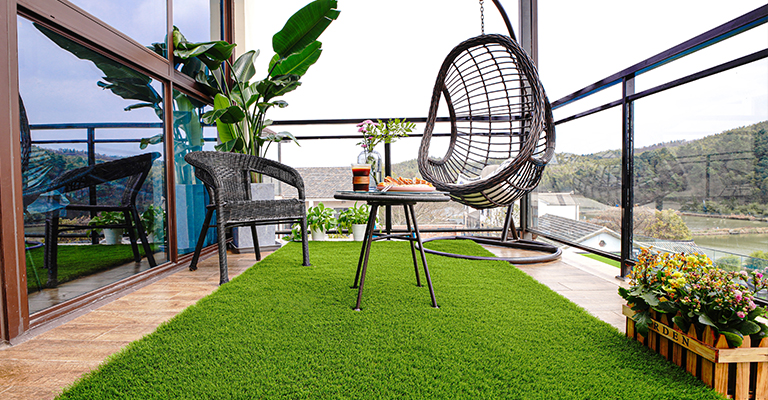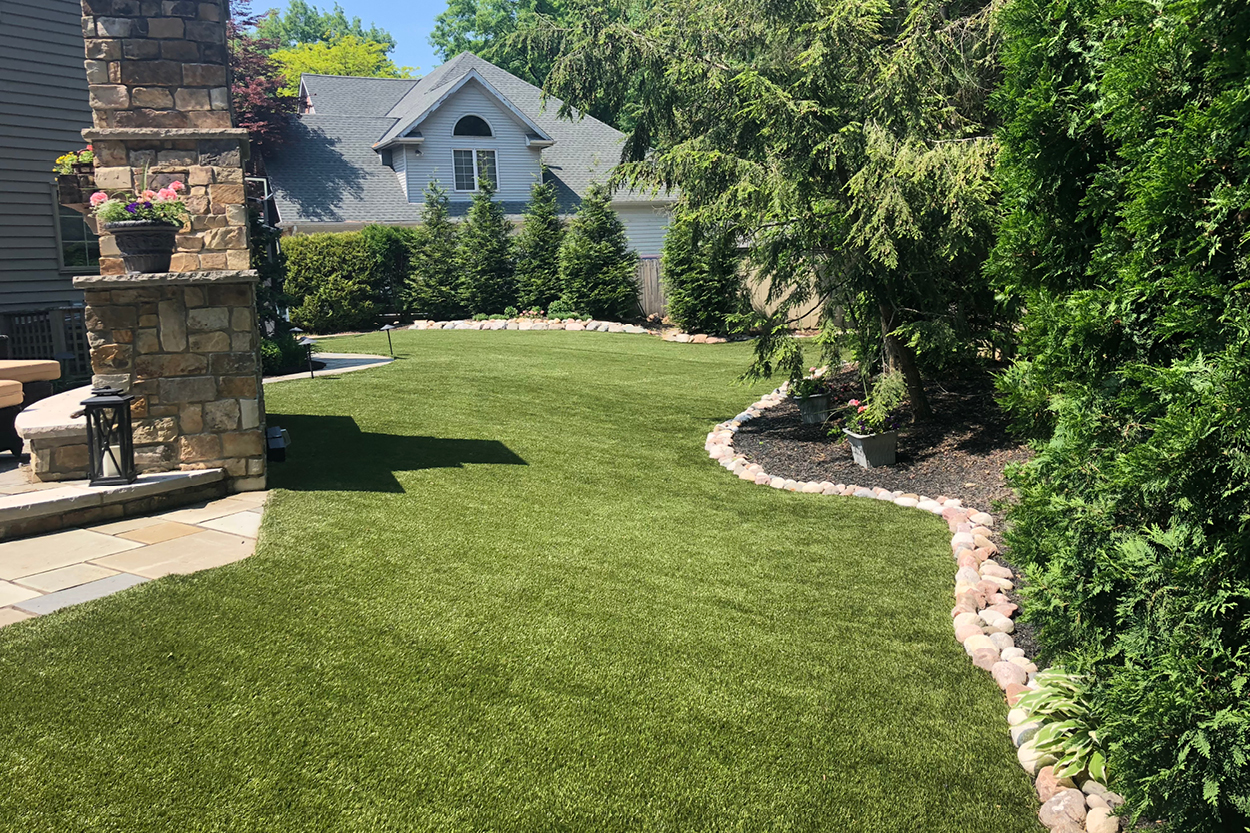Explore the Environmental Advantages of Opting for Synthetic Grass Solutions
The adoption of fabricated lawn solutions offers an engaging chance to deal with pressing ecological difficulties. By considerably lowering water usage and minimizing the application of dangerous chemicals, these choices not just advertise lasting landscape design yet additionally shield neighborhood ecological communities.
Water Preservation Perks
One of the most considerable advantages of man-made lawn is its capacity to save water. In contrast, synthetic lawn does not require watering, significantly reducing the overall need for water resources.
By removing the demand for normal watering, synthetic grass adds to sustainable landscape practices and assists reduce the ecological influence of excessive water usage. The preservation of water extends to the reduction of runoff, which can lead to soil erosion and waterway pollution.
In addition, the installation of artificial grass allows home owners and districts to assign water sources much more effectively, concentrating on important uses such as alcohol consumption water and farming. The shift towards fabricated lawn not only advertises accountable water usage but likewise aligns with wider ecological goals targeted at maintaining natural resources.
As communities increasingly focus on sustainability, the water preservation benefits of synthetic lawn offer an engaging situation for its adoption in commercial and property landscaping jobs.
Reduced Chemical Usage
The change to synthetic grass considerably lowers the reliance on chemical therapies commonly used in all-natural lawn upkeep. Conventional grass administration commonly entails the application of chemicals, herbicides, and plant foods to advertise development and control parasites. These chemicals can position dangers to human health and wellness, neighborhood wildlife, and the setting, contributing to dirt and water contamination.
In contrast, artificial lawn eliminates the demand for these unsafe substances. Once installed, it requires minimal upkeep, mainly including regular cleansing and occasional infill replenishment. This decrease in chemical usage not only benefits the instant atmosphere however likewise adds to wider ecological security. By lessening the release of artificial substances into the ecological community, synthetic grass promotes healthier dirt and water supply.
In addition, the lack of chemical runoff connected with synthetic lawn installations aids secure neighborhood waterways from contamination, supporting water life and maintaining biodiversity. Phoenix turf companies. As communities significantly prioritize lasting techniques, choosing artificial lawn presents a sensible remedy that straightens with environmental preservation objectives. With this shift, homeowner can enjoy lush environment-friendly rooms without jeopardizing ecological health and wellness, paving the way for an extra lasting future
Lower Carbon Impact

Additionally, the installation of synthetic grass can lead to substantial water conservation. Natural lawns require significant quantities of water for watering, which not just includes in the carbon footprint related to water removal and treatment but additionally stress neighborhood water resources. In comparison, synthetic grass requires very little maintenance, calling for no watering, therefore dramatically minimizing water use and its connected power prices.
Additionally, the longevity of synthetic grass adds to its reduced carbon effect. With a life-span of up to 15 years or more, the need for constant replacements is lessened, resulting in much less waste and lower energy intake in manufacturing and getting rid of standard yard options. In general, synthetic lawn presents a lasting choice for eco conscious landscape design.
Environment Conservation
Environment conservation is a vital consideration in the dispute over landscaping options, especially when contrasting synthetic grass to all-natural lawn. All-natural lawn lawns typically need substantial upkeep, including the use of chemicals, herbicides, and plant foods, which can negatively influence neighborhood environments. These chemicals can leach into the soil and rivers, harming native flora and animals and interfering with local habitats.
Artificial turf eliminates the requirement for unsafe chemicals, therefore securing close-by wildlife and preserving the integrity of bordering pop over to this web-site ecosystems. The installment of artificial turf can lead to the conversion of former yard locations into more biodiverse landscapes, such as pollinator gardens or native plant locations, which can sustain neighborhood wild animals.
Eventually, the change to artificial turf not just saves water and lowers upkeep initiatives yet additionally promotes a more harmonious relationship between human tasks look here and the natural surroundings, advertising environment preservation at the same time.
Long-Term Sustainability
Long-lasting sustainability is an essential element in examining the advantages of fabricated turf over typical turf yards. One of the most considerable benefits of artificial grass is its resilience; it can last approximately 15-20 years with minimal maintenance, whereas natural yard calls for constant reseeding and replacement. This durability lowers the requirement for constant resources, such as water, plant foods, and pesticides, which are important for preserving a healthy and balanced turf yard.
In addition, fabricated grass adds to a decrease in carbon exhausts connected with yard treatment equipment. Conventional yards often need gas-powered mowers, trimmers, and blowers, all of which add to air contamination. Phoenix turf companies. In contrast, fabricated lawn gets rid of the demand for such devices, promoting a cleaner setting
Additionally, the manufacturing of man-made lawn significantly uses recycled materials, boosting its learn this here now sustainability account. As producers adopt eco-friendly practices, the ecological footprint of synthetic grass proceeds to diminish.

Verdict
The adoption of synthetic grass services provides significant ecological advantages, including significant water conservation, decreased reliance on unsafe chemicals, and a reduced carbon impact. Additionally, synthetic grass help in protecting natural habitats by lessening land disturbance and advertising long-lasting sustainability with making use of sturdy materials. Collectively, these aspects underscore the potential of synthetic grass to contribute positively to ecological health and use a practical alternative to typical landscaping techniques in a significantly resource-conscious world.
In comparison, fabricated grass does not require watering, considerably decreasing the general demand for water sources. By decreasing the release of synthetic compounds into the community, fabricated turf promotes much healthier soil and water systems.
Furthermore, the installment of fabricated grass can result in considerable water preservation. In contrast, synthetic turf needs very little upkeep, requiring no watering, therefore substantially reducing water usage and its linked power prices.
